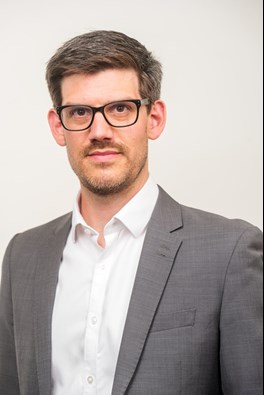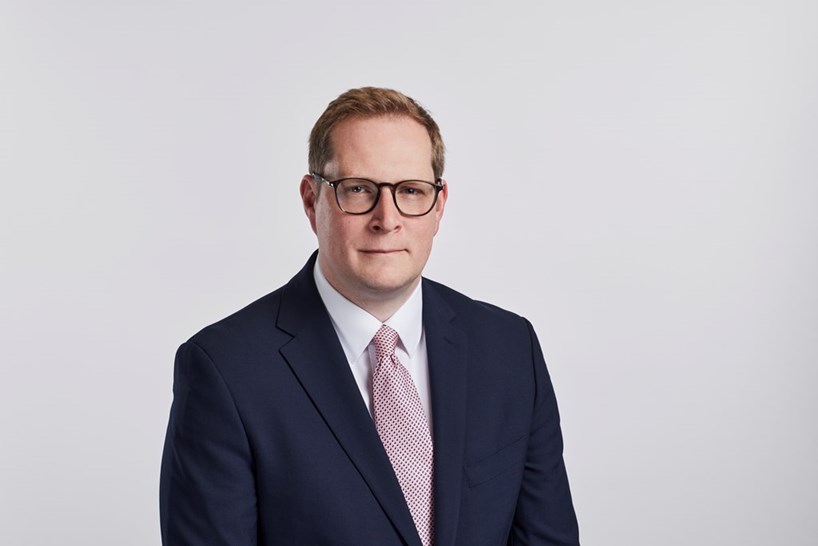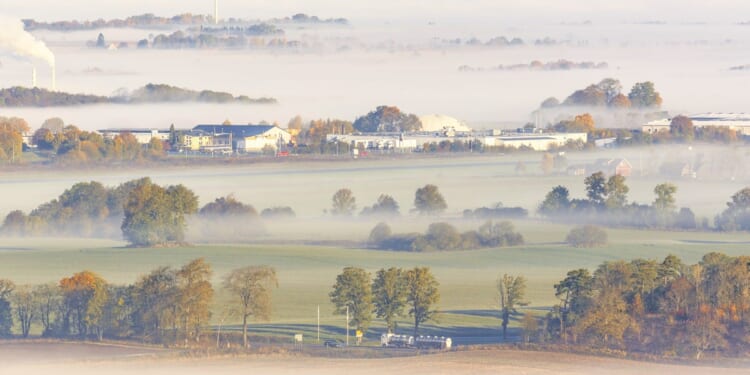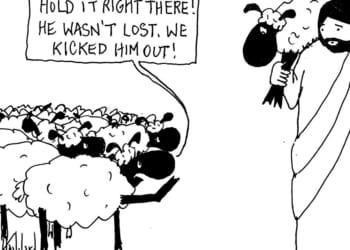IT IS a tumbleweed moment in the sustainability field, as a phenomenon known as “greenhushing” means that some companies and organisations have stopped telling stories about their environmental efforts. Christians are urged to fill this void with creation-care action as they seek to invest their money.
Research among 1009 business leaders in 2023 by the environmental charity Earthwatch Europe reflected this trend of sustainability silence. Nearly one in four medium and large companies in Britain surveyed had muted their environmental action over the previous 12 months.
The global climate-solutions consultancy South Pole highlighted the same trend more recently. Their Net Zero report 2023/24, Destination Zero: The state of corporate climate action, identified greenhushing across nearly every significant sector around the world, from fashion to tech.
The programme Rare Earth, on Radio 4, also highlighted the greenhushing phenomenon last year. It found that big corporations that once trumpeted their green credentials were now staying very quiet about the environment.
“From the Left they’ve been attacked by green zealots eager to expose greenwashing when their claims don’t stand up to scrutiny,” said the Rare Earth team in a synopsis of their programme.
“Meanwhile, from the Right, any hint of environmental action is condemned as ‘woke’. Better, some business advisers believe, to keep quiet about the issue and avoid offending any of their potential customers, or falling foul of new regulations.”
 James Alexander, UKSIF chief executive
James Alexander, UKSIF chief executive
The Church Times spoke to specialists in the sustainable-, responsible-, and ethical- investment realms about this issue. All note that political support for climate change has become increasingly polarised in recent months, particularly since the election of Donald Trump as US President.
“Clearly what’s happening politically has had impact,” said James Alexander, chief executive of the UK Sustainable Investment and Finance Association (UKSIF). “What we’re seeing in the industry is not so much people stopping doing work on sustainability. . . They’re still taking it very seriously. They’re just not talking about it as much.”
The reason that sustainability remained a key priority, he said, “is because sustainability risks are just as high as they’ve ever been — arguably higher. If you speak to people in Los Angeles who have faced wildfires recently, they will tell you that sustainability risks are high on the agenda, as they can’t get insurance for their homes.
“It’s clear even from the summer we’ve had here in the UK — breaking records again for temperature — that [the] impact of climate change is now happening. We’re seeing it. We can all feel it in our daily lives. Financial-services firms are taking that really seriously as part of the investments that they’re making.”
IN THE face of greenhushing, Mr Alexander suggests , Christians can respond by continuing to make sustainable lifestyle changes. “There’s lots and lots of opportunity now to be really sustainable. There’s lots of advice out there. People need to think about all aspects of their life, ranging from how they get around to how they heat their home.”
This includes choices about banking and investments, including pensions. Mr Alexander would like to encourage people to speak to their pension provider to find out whether that money is managed sustainably.
“What is [the pension fund] investing in?” he asks. “I think it’s really important that people should know that, and should start asking questions about the extent to which sustainability is factored in.”
UKSIF is the leading membership organisation for sustainable and responsible finance in the UK. It has published a guide to sustainable investing. This suggests questions that people can ask their bank or building society, such as: Is there a bank-level sustainability policy? Does the bank or building society offer any sustainable savings accounts? Do they offer green mortgages?
Mr Alexander urges people to speak up to counter greenhushing. “I think we all have a responsibility to do everything that we can that’s in our power, to address the problem in the way that we can. That means engaging with politicians and telling them how much you care about sustainability, and how much you want them to focus on it. . . It’s about where your money is invested, or savings are stored, and what impact that’s having.”
AMID the shifting political tide, other organisations have stayed on course. EdenTree invests on behalf of businesses and organisations, as well as private investors, and has won Moneyfacts “Best Ethical Investment Provider” award each year since 2009. It has reaffirmed its support for Net Zero, and its continued commitment to its own climate-change targets.
EdenTree is part of the Benefact Group, a family of specialist financial-services businesses, including Ecclesiastical Insurance, which gives its profits to charity and good causes. In its Responsible Investment Activity Report for the first quarter of this year, EdenTree said that it was proud to “bang the drum” for sustainable investment.
 Carlota Esguevillas, head of sustainable investment at EdenTree
Carlota Esguevillas, head of sustainable investment at EdenTree
EdenTree’s head of sustainable investment, Carlota Esguevillas, says: “It’s a really interesting time for the industry, and in many ways we see it as a really fundamental reshaping in what the industry looks like.
“We’ve seen a lot more divergence in the industry, with some firms stepping up, and others deciding that, actually, this isn’t necessarily the path for them.
“Although it’s disappointing to see others step back, we actually see it as a kind of a ‘line in the sand’ moment, where we see those that are truly committed to this area. Ultimately, that’s a good thing for our clients — to have that clarity of what funds really stand for.”
Some companies that are still engaged with environmental issues are responding to the current pressures another way: by using a different vocabulary.
“Instead of talking about the public crisis or emissions,” Ms Esguevillas says, “they talk about ‘energy efficiency’; so it does require a little bit of interpretation from our side to determine who is actually still committed and who has genuinely stepped back.”
Like Mr Alexander, Ms Esguevillas also urges Christians to prioritise climate care when making investment and pension choices. “Investments are sometimes a little bit more intangible than other actions that we take in our lives , such as going to the shop, or what we eat, or what we do on holiday.
“But I think the impact that we as individuals and organisations can have through our investments, and making active decisions to put that money in sustainable funds, is a fundamental way in which we can have a positive impact on the world.”
CCLA Investment Management Limited (originally an acronym of Churches, Charities and Local Authorities) is an asset manager helping its clients to use their investments to make a positive difference. CCLA’s latest Better World report compares the current state of affairs to the party song the “Hokey Cokey”.
The chief executive Peter Hugh Smith describes this as “an apt metaphor for the investment management industry’s approach to sustainability. First, most firms were ‘out’, sustainability being seen as the preserve of a sandal-wearing minority. Then they were ‘in’, as sustainability began to emerge as the key to growing client engagement. Now, faced with a changing political environment in North America and the perception that clients no longer care, a whole lot are ‘out’ once again.”
 Dr James Corah, CCLA’s head of ethical & responsible investment
Dr James Corah, CCLA’s head of ethical & responsible investment
Mr Hugh Smith believes that the investment industry needs to go beyond “in” and “out”, and put their whole selves in and stay there. “To properly serve our clients,” he writes, “we need to end the sustainability ‘Hokey Cokey’.”
CCLA’s head of ethical & responsible investment, Dr James Corah, believes greenhushing will not silence the movement. Sustainability is still popular among those who want their money to make both a return and a difference.
“There’s been this big rush in our industry to create sustainable funds, which are, in essence, kind of thematic funds, investing in the greenest of stocks, and build that as a style,” he said. “People are genuinely interested in old-style ethical investment.”
Dr Corah reckons that, in many instances, it was Christian organisations that created ethical investment. “And it’s Christian organisations that are continuing to show that that way of investing continues to be really important.”
He agrees that “addressing climate change and a pro-sustainability Zeitgeist is definitely being undermined somewhat at the moment.” But that presents an opportunity for churches and individual Christians to promote sustainability, he suggests.
“When you look back to our industry, who are the people who are really leading it right now? It tends to be those people, and firms, that have come from . . . a real values-led reason for doing it.
“I think what we’re seeing is that those people who saw it as ‘nice to have’ come and go; but those that truly believe have remained. And so, I think there’s . . . a real opportunity for churches, in particular, that are rooted in every community, to show why addressing climate change is beneficial to everyone — to show why actually doing right is the right thing to do.”

















